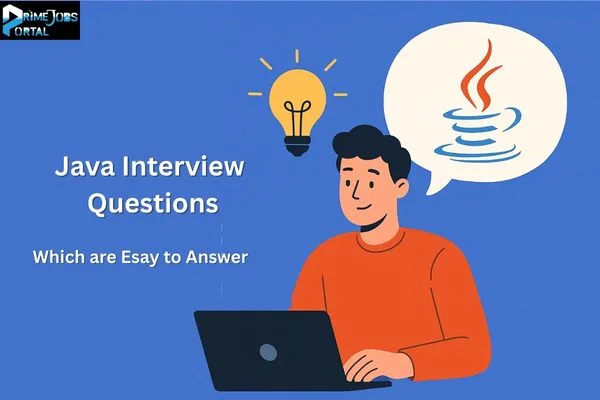Jumping into a Java interview can feel like stepping into the unknown. But here’s a secret: a big chunk of the questions you get will be the basics — straightforward, approachable, and designed to see if you really understand the core ideas. If you’re looking for java interview questions which is easy to answer, you’re in the right spot.
Let’s take a stress-free stroll through some of the most common, easy Java interview questions, answering them with confidence and clarity.
Why Start With The Simple Stuff?
Starting out strong with easy questions makes a world of difference. It’s like warming up before a race — you get comfortable, build momentum, and set a positive tone that carries you through.
Interviewers often begin here because they want to see if you have the basics down cold.
Java’s Building Blocks: The Basics You Must Know
What’s OOP and Why Does It Matter?
In Java, Object-Oriented Programming (OOP) is king. It’s based on four pillars:
Encapsulation: Think of it like a capsule, bundling data and methods securely together.
Inheritance: Imagine a child inheriting traits from a parent — code that’s already written gets reused.
Polymorphism: Picture a Swiss Army knife, doing many tasks with a single tool.
Abstraction: It’s like the dashboard of a car — you only see what’s important, hiding complexities underneath.
How Are JDK, JRE, and JVM Different?
JDK(Java Development Kit): Your full toolkit for writing and compiling Java programs — it’s like your workshop.
JRE(Java Runtime Environment): The delivery van that runs your Java apps — it has the tools but focuses on execution.
JVM(Java Virtual Machine): The engine inside the van that actually gets your code moving, regardless of the road (operating system).
What Makes Java Platform Independent?
Java code becomes bytecode, a universal language that JVMs on any computer can understand. Whether it’s Windows, Mac, or Linux, JVM ensures your code runs smoothly anywhere.
What’s the Difference Between == and .equals()?
==: Literally asks, “Are you the exact same object in memory?”.equals(): Asks, “Do you look the same, even if you’re different objects?”
For strings, .equals() is your friend.
Collections: Managing Java’s Data Efficiently
What’s The Difference Between ArrayList and LinkedList?
ArrayList: Like a numbered row of seats — quick to find a seat but harder to add or remove people in the middle.
LinkedList: Like a conga line — easy to add or remove players but slower to jump to a specific person.
How To Spot Duplicates in An Array?
Use a HashSet. Imagine a guest list where each name can only appear once. Attempting to add a duplicate? The set will catch it instantly!
Handling Errors: Keep Your Code Calm
How Does try-catch-finally Work?
Think of cooking:
The try block is where you cook,
catch is having a fire extinguisher ready,
And finally is cleaning up the kitchen afterward, no matter what.
Checked Vs Unchecked Exceptions?
Checked: Expected hiccups you’re prepared for, like a rainy day umbrella.
Unchecked: Surprises you hope won’t happen, like tripping on a curb.
Multithreading: Java’s Ability to Multitask
How To Create A Thread?
Extend Thread or implement Runnable, then start it. It’s like launching a new worker to handle tasks simultaneously.
What Are Lambda Expressions?
Short, unnamed functions that make your code crisp and expressive — like shorthand for your code.
Practice Makes Perfect: Sample Questions
Is this string a palindrome?
Calculate factorial of a number.
Detect duplicates in a list.
Reverse a string manually.
Also Read: E-commerce And FinTech: The Next Big Job Sectors for Freshers
Pro Tips For Java Interviews
Talk about the “why” as much as the “what.”
It’s okay not to know; share your eagerness to learn.
Be clear and relatable.
Practice speaking answers aloud.
Wrap Up
Knowing these java interview questions which is easy to answer will give you an edge, helping you breeze through early rounds. Keep practicing, stay confident, and remember—every expert was once a beginner.








